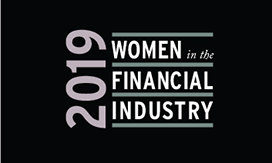SPECIAL SPONSORED CONTENT
WOMEN IN LEADERSHIP

“Leadership comes in different styles and not every style works in every environment, but two qualities are key in any industry: Empathy and drive.”
- Dagmara Fijalkowski, Head of Global Fixed Income & Currencies, RBC Global Asset Management
What’s the best career advice you’ve received?
“By failing to prepare, you are preparing to fail.” That quote from Benjamin Franklin resonates with me in both my professional and my personal life. My approach has always been to prepare for various eventualities.
I typically have a Plan A and B, and sometimes even C.
How would you describe your leadership style?
I think of myself as a roadblock-remover and a facilitator. I like thinking ahead, focusing on potential obstacles that can prevent people from achieving their peak performance, and then figuring out how to remove those obstacles. At RBC GAM, we take considerable care to hire people with great potential who are also willing to work very hard. We then create an environment where they can exceed expectations—ours and their own.
Early in my career, I didn’t think of myself as a leader and I tried to avoid managing people. I loved being a specialist. That part of my job—being thoroughly immersed in financial markets—is still something I enjoy. But I’ve discovered that being an expert in an area and being a leader aren’t mutually exclusive, and I’ve found that managing people is also incredibly satisfying to me.
What is the most rewarding part of your job?
I love financial markets. I never get tired of watching the markets and the news, looking at the data, connecting the dots, [and] trying to figure out what comes next. That never feels like work to me. I also like the fact that, as portfolio managers, we can measure our success on a daily basis. Markets deliver a score card at the end of each day, and for people who aren’t afraid of accountability, this is a great environment to build a career.
What do you think are the greatest barriers women face in the financial industry?
The financial industry suffers from the perception that it’s either an uninteresting place to work or a challenging environment for women, one that’s heavily populated by men. How do we fight that perception? It’s up to those of us already in the industry to become active ambassadors for our profession. In my experience, investing is intellectually stimulating, challenging, rewarding, fast-paced, and ever-changing. And, because results are measurable, it’s tough to discriminate based on gender or any other grounds. I’m particularly excited that a number of remarkable young women I know are claiming their place in asset management, and I’m confident they’ll have great careers.
What career advice would you give women starting out in asset management?
Ask more questions and listen carefully to the answers. Don’t be afraid to fail.
And acknowledge failures, because it’s important to learn from them. If the lessons aren’t obvious, ask others what you could have done differently. Ask men and women—anybody who seems willing to help you.
What do you think are the key leadership qualities women need to succeed?
Leadership comes in different styles and not every style works in every environment, but two qualities are key in any industry: empathy and drive. Empathy because it helps when working with diverse teams—not just in terms of gender, but also diversity in nationality, race, religion, educational background, family situation, and more. As for drive, I don’t know any leaders without it.
What is RBC GAM doing to advance women in leadership positions within the organization?
Having more women in leadership has been an important goal for RBC GAM for many years. We have diversity committees at different levels of the organization, and it’s an objective for all managers to foster a culture that supports women in leadership. We encourage informal and formal mentoring, volunteering, and community engagement. For example, we recently partnered with B3 Canada in a pilot to help employees gain leadership experience by joining not-for-profit boards.
To help build a pipeline of female talent, we participate in RBC Ladies Who Lunch events for high school students and encourage female managers to participate in recruiting and networking events for university students. This year, we signed up with Girls Who Invest to sponsor special training and summer jobs. For the past few years, we’ve had a mentorship program with second-year female students at the University of British Columbia and Simon Fraser University. We also partner with the Return to Bay Street Program for women who want to return to the industry after an extended absence to have a family.
We’re extending our efforts beyond that, too. At our Women in Investing program for clients, for example, female leaders present on subjects related to finance and investing. Often, female clients bring their daughters and granddaughters, making the events both community-building and inspirational. To support women in business more generally, RBC GAM joined the 30% Club and launched an ETF focused on companies that have demonstrated a commitment to gender diversity.
We continue to look for new ways to attract more qualified female candidates, to help young women develop skills needed in their careers, and to support those who show talent for leadership. It’s something that’s embedded in our culture and valued by all employees, not just executives.

